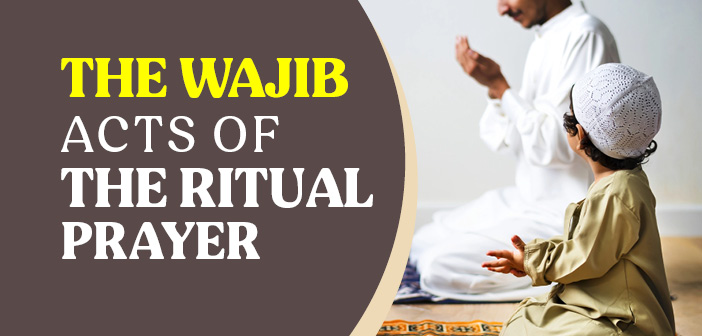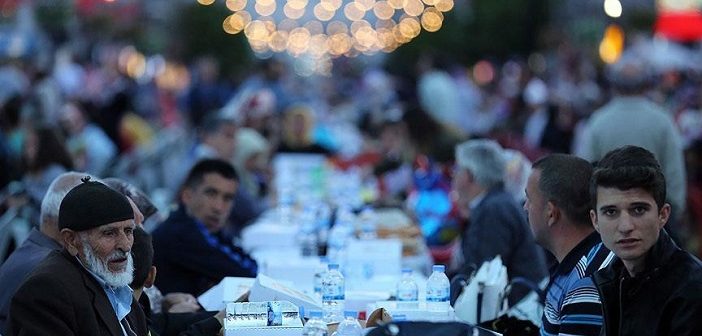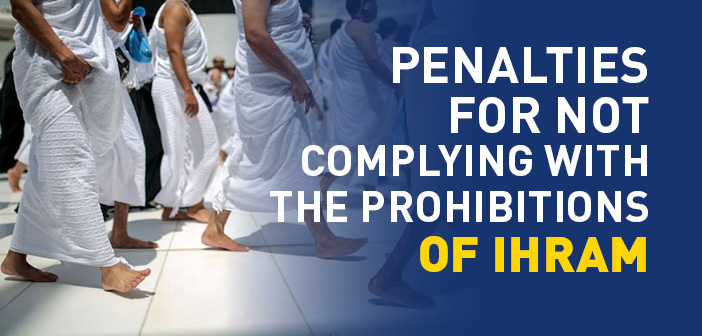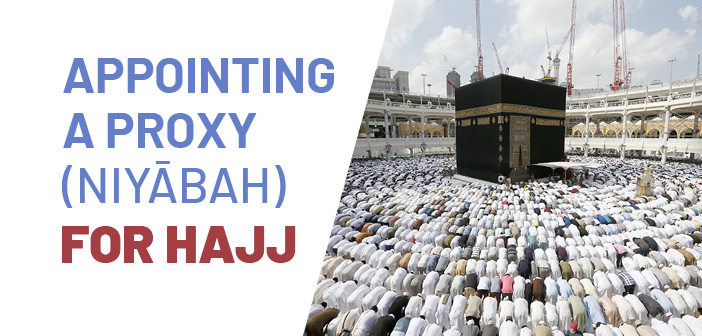
The Wajib Acts of The Ritual Prayer
What are the wajib acts of the prayer? What are wajib acts in islam? How many wajib acts are there in salah? What are the 21 wajib acts of salah?
According to the Ḥanafis, a ruling based on definite evidence such as a Qur’anic verse, mutawātir, or mashḥūr hadith, but whose indication is conjectural, is called “wajib”. The ruling of wājib is that the one who abandons it will be held accountable in the hereafter. The prayer is not invalidated due to the abandonment of a wajib act. Yet, in order to eliminate this deficiency, it is necessary to perform the sajdah as-sahw (prostration of forgetfulness) at the end of the prayer. However, intentionally abandoning a wājib act requires the re-performance of the prayer.
The concept of wājib exists only in the Ḥanafi School, whereas in the other three schools some of these wājib acts we will note below are considered farḍ (obligatory), while others are considered sunnah.
The wājib acts of prayer are:
1) To begin the prayer with the exact phrase “Allahu Akbar”. This is farḍ according to the majority of schools.
2) To recite surah Fatiḥa in every cycle of the prayers. Prophet (saw) said, “A person who does not recite Fatiḥa has no prayer.”[1] The Ḥanafis understood this hadith as “The prayer will be incomplete, and will devoid of its rewards and virtues”. However, this hadith is a khabar wāhid (solitary report transmitted through only one narrator), and it is not strong enough to abrogate the following verse, “…Recite, then, as much of the Qur’an as you may do with ease...”[2] Still, in a hadith narrated by Aisha, Abu Hurayra and Amr Ibn Shuayb from her father and her grandfather, it is stated that “every prayer in which the Fatiḥa is not recited is deficient and incomplete.”[3] This narration, therefore, explains the following hadith “There is no prayer without Fatiḥa”.
According to the majority except for the Ḥanafis, it is obligatory to recite the Fatiḥa in every cycle of the prayer.
3) To perform the obligatory recitation in prayers in the first two cycles.
4) To recite Fatiḥa once in each of the first two cycles and not repeat it.
5) To recite Fatiḥa before the additional Qur’anic chapter or verses to be recited. This is because the Prophet (saw) recited it that way.
If a person remembers that he did not recite the Fatiḥa before the performance of the rukūʿ, he first recites the Fatiḥa, then recites an additional surah, and because of this delay, he performs a prostration of forgetfulness at the end of the prayer.
6) In the first two cycles of the farḍ prayers, and in each cycle of the wājib and supererogatory prayers, recite a short surah from the Qur’an or one or more verses equal in length to it after the Fatiḥa. It is wājib to add one short surah, or three short verses equivalent to the shortest surah, or a long verse equivalent to three short verses, to chapter Fatiḥa. The shortest chapter in the Qur’an is the chapter “Kawthar (108)” and the shortest verse is the verse “thumma naẓar (he then looked at)”. It is reported that Abu Said al-Khudri (ra), one of the Companions, said, “In addition to Fatiḥa, we were commanded to recite in prayer from the verses that came easy to us.”[4] In this regard, the meaning of the following hadith is clearer. In another hadith, “No obligatory or supererogatory prayer performed without a Fatiḥa and a surah is sufficient.”[5]
According to the three schools except for the Ḥanafis, reciting additional chapters or some verses after Fatiḥa is a sunnah. The evidence they rely on is the following hadith reported from Abu Hurayra: “The prayer of one who does not recite more than Fatiḥa is sufficient. If he reads more, it is better.”[6]
7) A person who prays alone is free to read aloud or silently in dawn, evening, and night prayers. He can recite it aloud or silently if he wishes. However, it is wājib to recite silently in the nafilah prayers to be performed at noon, late afternoon, and at other times during the day.
A person who performs nafilah prayers at night also has the option to choose between reciting it aloud and reciting it silently. However, in order not to wake those who sleep, he should be content to keep his voice at the lowest level. When the Prophet (saw) recited aloud in the tahajjud prayers that he performed at night, he did not wake the people who were asleep, and his recitation would calm those who were awake. When Aisha (r.anha) was asked about the recitation of the Messenger of Allah (saw) during the night prayers, she replied: “He would sometimes recite aloud, and sometimes silently, and sometimes do all of these.”[7]
According to all the schools other than the Ḥanafis, the manner of recitation, i.e. aloud or silent, is a sunnah for both the individual prayers and the prayers performed in the congregation.[8]
8) In the prayer performed in congregation, it is wājib for the imam to recite aloud in every cycle of dawn, Friday, eid, tarawīḥ, and witr prayers; and in the first two cycles of the evening and night prayers; and to recite silently in all the cycles of the noon and late afternoon prayers, and in the third cycle of the evening prayer and the last two cycles of the night prayer.
9) According to Abu Ḥanīfa, it is wājib to recite the supplication of qunūt and recite the takbīr before the supplication of qunūt in the witr prayer. According to Abu Yusuf and Imam Muhammad and the majority of the other schools, these are sunnah. (For the supplication of qunūt, see “Witr Prayer”)
10) If a missed prayer is to be performed in congregation during the day and if it is a prayer that must be recited aloud like the dawn prayer, it is performed aloud. A prayer that will be performed silently, like the noon prayer, should be performed silently. The one who makes up the prayer by himself, not in the congregation, is free to choose. In a prayer that will be recited aloud, he can recite aloud. According to a narration, it is not optional and it is wājib to recite any prayer silently that is made up during the day.
11) Three additional takbīrs of each of the two Eid prayers are wājib. In these prayers, the rukūʿ and the prostration takbīrs of the first cycles are sunnah. The rukūʿ takbīrs of the second cycle are considered wājib because they are adjacent to the additional takbīrs that are wājib. According to the other schools, all these takbīrs, including the additional ones in Eid prayers, are sunnah.
12) It is obligatory to put the nose on the ground along with the forehead in prostration.
13) Sitting at the end of the second cycle in three or four-cycle prayers (qa’da al- ‘ulā – first sitting). This is because the Prophet (saw) continued to do this, and when he would stand up by mistake, he would make the prostration of forgetfulness.[9] According to the Malikis and the Shafiʿis, the first sitting is a sunnah. As for the Hanbalis, it is obligatory.[10]
14) To perform the tashahhud in every sitting of the prayers, which means to recite the taḥiyyāt. The Prophet (saw) said, “When you sit in every two-cycle, “Say at-taḥiyyātu lillahi...”[11] When the Companions used to sit behind the Messenger of Allah (saw) while praying, they would begin to say, “Greetings to Gabriel, Mikail, so-and-so, and so-and-so.” The Prophet turned to them and taught them the supplication of taḥiyyāt and stated that when taḥiyyāt is recited in sitting, it addressed every righteous servant of Allah in heaven and on earth without specifically naming them.[12]
According to the Ḥanafis, the supplication of “taḥiyyāt” taught by the Prophet to Abdullah ibn Mas’ūd (ra) is as follows:
“At-taḥiyyātu li-llāhi, wa-ṣ-ṣalawātu wa-ṭ-ṭayyibātu. as-salāmu ʿalayka ʾayyuhā n-nabiyyu wa raḥmatu -llāhi wa barakātuhu. as-salāmu ʿalaynā wa ʿalā ʿibādi -llāhi ṣ-ṣāliḥīna. ʾashhadu ʾan lā ʾilāha ʾillā -llāhu wa ʾashhadu ʾanna muḥammadan ʿabduhu wa rasūluh”[13]
Meaning: “Salutations, prayers and good deeds to Allah. Peace be upon you, O Prophet, as well as Allah’s mercy and His blessings. Peace be upon us and upon the righteous servants of God. I bear witness that there is no deity but Allah, and I bear witness that Muhammad is His servant and His messenger.”
According to Malikis, it is as follows,
at-taḥīyātu li-llāhi, az-zākiyātu li-llāhi aṭ-ṭayyibātu wa-ṣ-ṣalawātu li-llāhi. as-salāmu ʿalayka ayyuhā n-nabīyu wa-raḥmatu -llāhi wa-barakātuhu. as-salāmu ʿalaynā wa-ʿalā ʿibādi -llāhi ṣ-ṣāliḥīna. ʾashhadu an lā ʾilāha ʾillā -llāhu wa-ʾashhadu ʾanna muḥammadan ʿabduhū wa-rasūluh
Meaning: “Salutations to Allah. Pureness to Allah. Good deeds and prayers to Allah. Peace be upon you, O Prophet, as well as Allah’s mercy and His blessings. Peace be upon us and upon the righteous servants of Allah. I bear witness that there is no deity but Allah, and I bear witness that Muhammad is His servant and His messenger.”
According to Shafiʿis, it is as follows,
“At-taḥīyātu l-mubārakātu ṣ-ṣalawātu ṭ-ṭayyibātu li-llāhi. as-salāmu ʿalayka ʾayyuhā n-nabīyu wa-raḥmatu -llāhi wa-barakātuhu. as-salāmu ʿalaynā wa-ʿala ʿibādi llāhi ṣ-ṣāliḥīna. ʾashhadu ʾan lā ʾilāha ʾillā -llāhu wa-ʾashhadu ʾanna muḥammadan rasūlullāhi.”
Meaning: “Blessed salutations, prayers, good deeds to Allah. Peace be upon you, O Prophet, as well as Allah’s mercy and His blessings. Peace be upon us and upon the righteous servants of Allah. I bear witness that there is no deity but Allah, and I bear witness that Muhammad is His servant and His messenger.”
15) Not to delay an obligatory act in the ritual prayer. For example, if, after reciting the taḥiyyāt in the first sitting, one delays long enough to recite “Allahumma ṣalli ‘ala Muḥammad…” and then stands up for the third cycle, the farḍ acts are considered delayed and prostration of forgetfulness becomes required.
16) Observing the order among the farḍ acts of the prayer. If observing the order (tartīb al-arkān) is in question between recitation and rukūʿ and in the movements that are repeated in each cycle. For example, if a person abandons one of the prostrations of the first cycle, he or she makes up this prostration without speaking after the last sitting or saluting. Then she or he does the sitting with tashahhud again, and after the first salutation, she or he performs the prostration of forgetfulness and then sits for tashahhud again.
17) It is wājib not to delay any of the wājibs and perform them in their proper places. For instance, this involves getting lost in thoughts for a while after the recitation and delaying going down to rukūʿ.
18) It is wājib to perform the prostration of forgetfulness in prayer due to the wājibs that were neglected by error.
19) It is obligatory to perform the prostration of recitation because of the recitation of a prostration verse in the ritual prayer.
20) According to Abu Ḥanīfa and Imam Muhammad, it is wājib to observe ta’dil al-arkān in the pillars of the ritual prayer. In rukūʿ, prostration, standing up from rukūʿ or between two prostrations, the limbs should find rest, the muscles should relax and the body should be calm. The proof of this is the hadith about a person who performed his prayer not properly. The Prophet said in this hadith, “… and then bow with calmness till you feel at ease, then rise from bowing till you stand straight. Afterward, prostrate calmly till you feel at ease and then raise (your head) and sit with calmness till you feel at ease and then prostrate with calmness till you feel at ease in prostration and do the same in the whole of your prayer.”[14]
21) To give salutation at the end of the prayers. It is wājib to say “as-salām” by turning the face first to the right and then to the left. Saying “Alaykum wa raḥmatullāh (peace and blessings of Allah be upon you)” is sunnah.
In a hadith narrated by Abdullah Ibn Mas’ūd (ra), the following is stated: “The Prophet (saw) saluted to his right and left, saying, “as-salāmu alaykum wa raḥmatullāh, as-salāmu alaykum wa raḥmatullāh” and the whiteness of his cheek was visible as he turned to the right and left.”[15]
According to the majority of jurists, the ritual prayer ends by saying “as-salāmu” to the right side. According to another view, it is sunnah to greet on the left side. Therefore, it is not permissible for someone to follow an imam who has already given the first greeting.
[1] Al-Tirmidhī, Mawāqīṭ, 69; Al-Darimī, Ṣalāh, 36. [2] Al-Muzzammil, 73: 20. [3] Ibn Maja, ‘Iqāmah, 11, Hadith No: 838, 840, 841. [4] Aḥmad ibn Ḥanbal, III, 2; Some relates this narration as marfu’ and some others as mawqūf. Al-Zaylaī, Naṣb, I, 364. [5] Al-Tirmidhī, Mawāqīṭ, 69, 116; al-Darimī, Ṣalāh, 36; Aḥmad ibn Ḥanbal, II, 428; This hadith is weak and is reported by Ibn Adiyy in Kāmil. [6] Al-Tirmidhī, Mawāqīṭ, 116; Aḥmad ibn Ḥanbal, II, 428; This hadith is mawqūf. Al-Zaylaī, Naṣb al-Rāya, I, 365. [7] Al-Nasā’ī, Qiyām al-Layl, 23. Al-Tirmidhī said that this hadith is authentic (ṣaḥīḥ). Its transmitters are strong. See al-Shawkanī, ibid, III, 59. [8] Akyüz, ibid, vol. 1, pp. 159-161. [9] Al-Shawkanī, ibid, II, 273. [10] Akyüz, ibid, vol.1 pp. 159-161. [11] See Muslim, Ṣalāh, 24; Abū Dawūd, Ṣalāh, 122; Aḥmad ibn Ḥanbal, IV, 381, 422. [12] Al-Bukhari, Adhān, 148. [13] See al-Bukhari, Adhān, 148, 150; Daʿāwāt, 16, Tawḥīd, 5; Muslim, Ṣalāh, 56, 60, 62; Abū Dawūd, Ṣalāh, 128; Aḥmad ibn Ḥanbal, I, 422. [14] Al-Bukhari, Adhān, 95, 122; Muslim, Ṣalāh, 45; Abū Dawūd, Ṣalāh, 164; al-Tirmidhī, Mawāqīṭ, 110. [15] Muslim, ‘Iqāmah, 27; Abū Dawūd, Ṣalāh, 41, 187, 188; al-Tirmidhī, Mawāqīṭ, 105; al-Nasā’ī, Ṭaṭbīq, 34, 83, Sahw, 68-71.
Source: Basic Islamic Principles (ilmiḥal) According to the Four Sunni Schools With Evidence From The Sources of Islamic Law, Prof. Hamdi Döndüren, Erkam Publications











